Many people wonder, do sunglasses block blue light? This question has grown in importance as screen time increases. We spend hours on phones, computers, and tablets. These devices emit blue light daily. At the same time, natural blue light comes from the sun. It plays a role in regulating sleep and mood. But too much exposure can cause eye strain and disrupt rest.
Sunglasses are designed to protect against bright sunlight and UV rays. Most block 99–100% of UVA and UVB radiation. However, their effect on blue light varies. Not all sunglasses filter it effectively. Some reduce it slightly. Others may even increase blue light exposure due to lens color or coating. Understanding the difference is key to making smart choices.
Blue light falls within the visible spectrum. It has short wavelengths and high energy. While some blue light is beneficial, excessive amounts—especially at night—can harm vision. Digital screens contribute heavily to this. Outdoor exposure adds more during the day. So, if you wear sunglasses regularly, knowing whether they help with blue light matters. Let’s explore how different lenses work and what to look for.
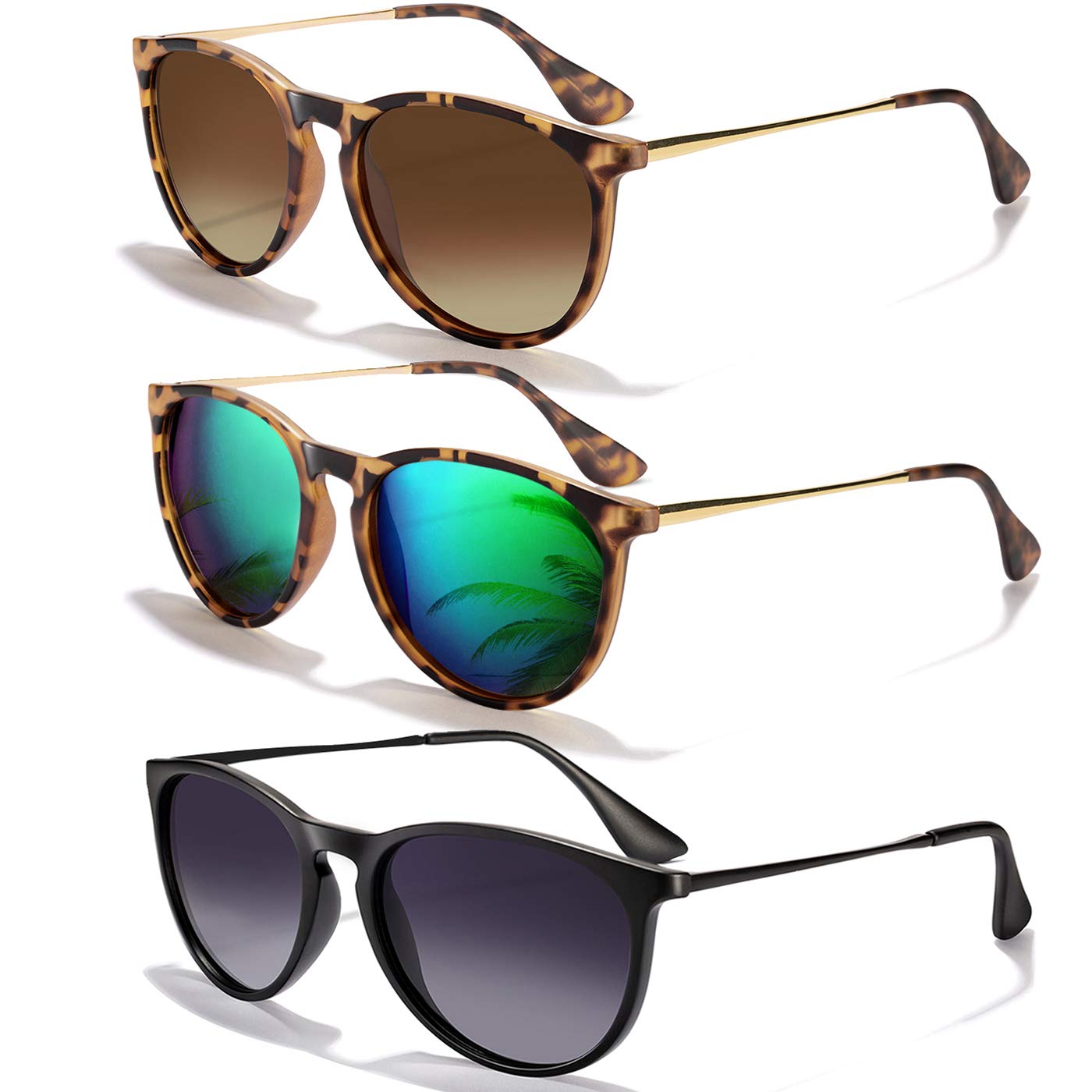 What Is Blue Light and Where Does It Come From?
What Is Blue Light and Where Does It Come From?
Blue light is part of the visible light spectrum. It ranges from about 380 to 500 nanometers in wavelength. Among visible colors, it carries the most energy. The primary source is sunlight. Natural blue light helps regulate circadian rhythms. It boosts alertness, mood, and focus during daytime hours.
However, artificial sources now play a major role. LED lights, fluorescent bulbs, smartphones, monitors, and TVs all emit blue light. Screen time has surged in recent years. Many people use devices from morning until bedtime. This constant exposure affects eye health. It contributes to digital eye strain. Symptoms include dry eyes, headaches, and blurred vision.
Moreover, nighttime exposure interferes with melatonin production. This hormone signals your body to sleep. Too much blue light after sunset delays sleep onset. Over time, poor sleep quality results. Children and teens are especially vulnerable. Their developing eyes absorb more blue light than adults.
Outdoor environments also contain high levels. Sunlight reflects off water, sand, snow, and pavement. This intensifies exposure. Skiers and beachgoers often experience glare. That’s why UV-blocking sunglasses are essential. But again, the issue remains: do sunglasses block blue light effectively under these conditions?
How Sunglasses Are Designed to Protect Against Light
Sunglasses serve multiple protective functions. First, they reduce overall brightness. This improves visual comfort in sunny conditions. Second, they shield eyes from harmful ultraviolet (UV) rays. Quality lenses block 99–100% of UVA and UVB. This prevents long-term damage like cataracts and macular degeneration.
Third, many models reduce glare. Polarized lenses achieve this by filtering horizontal light waves. They are ideal for driving, fishing, or skiing. Fourth, some enhance contrast. Amber or brown tints improve depth perception. This helps in sports and outdoor activities.
But not all sunglasses target blue light specifically. Standard gray, green, or mirrored lenses cut brightness. They may block a portion of blue light by default. Yet, they don’t selectively filter it. Clear blue light blocking glasses do that indoors. They often have yellow or amber tints. These are not suitable for outdoor use.
Lens material also affects performance. Polycarbonate lenses are common. They are lightweight and impact-resistant. CR-39 plastic offers good optical clarity. Glass lenses provide sharp vision but are heavier.
Coatings add functionality. Anti-reflective layers reduce back-glare. Mirror coatings reflect excess light. Hydrophobic treatments repel water. However, unless labeled as blue-light-filtering, most outdoor sunglasses aren’t optimized for this purpose. So, when asking, do sunglasses block blue light, the answer depends on design and intent.
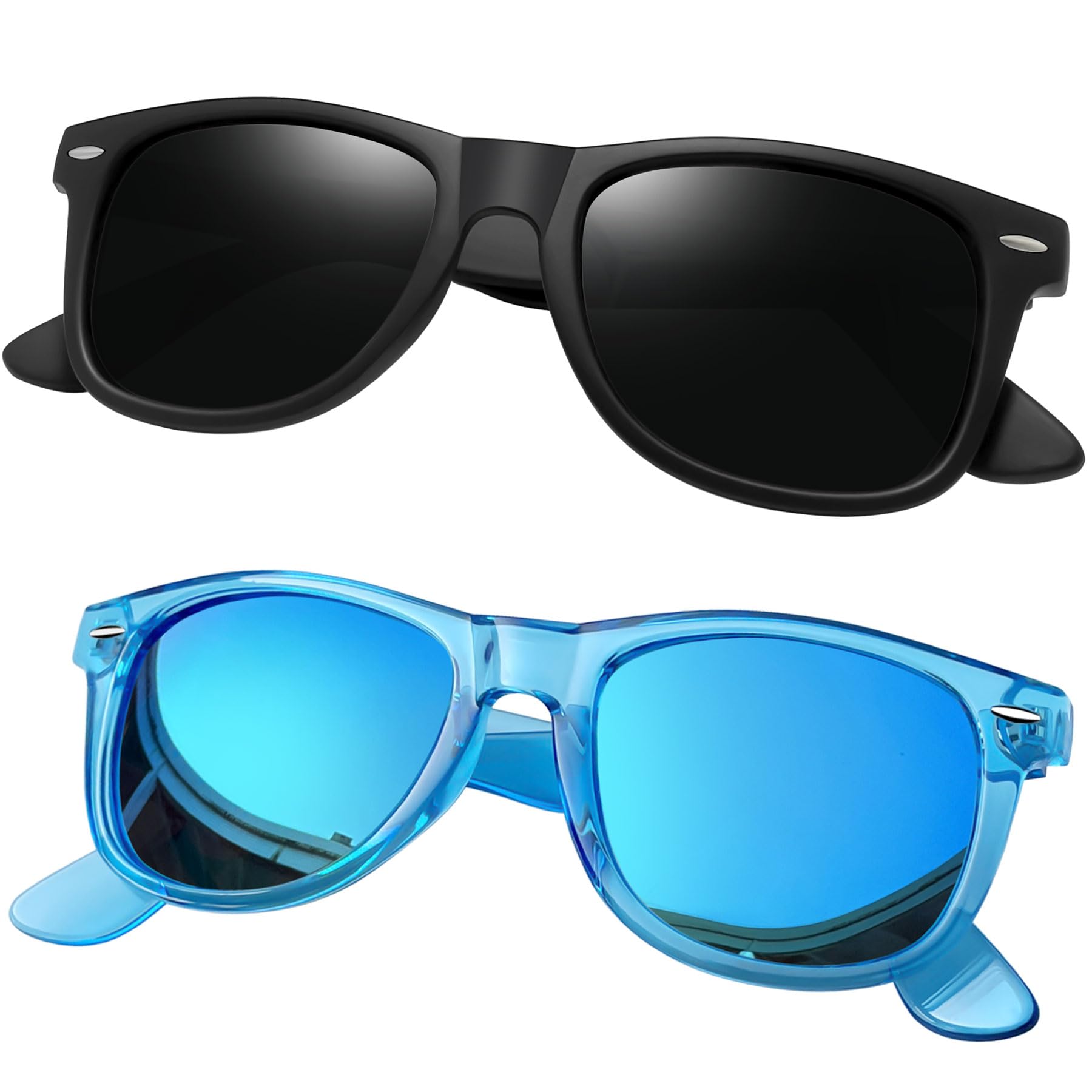 Types of Lenses and Their Effect on Blue Light
Types of Lenses and Their Effect on Blue Light
Different lens types affect blue light in various ways. Gray lenses maintain true color perception. They reduce brightness evenly across the spectrum. They block some blue light but not selectively. Green lenses offer similar benefits. They enhance contrast slightly. Both are popular for general use.
Brown or amber lenses increase contrast. They filter more blue light than gray ones. As a result, they are better at reducing haze and improving clarity. Anglers and drivers often prefer them. These tints mimic the effect of indoor blue light glasses. However, they are still primarily designed for sunlight.
Yellow lenses block nearly all blue light. They are used in low-light sports like shooting or skiing at dawn. They dramatically improve visual acuity in foggy conditions. But they distort colors. They are not recommended for daytime driving.
Polarized lenses reduce glare. They don’t inherently block more blue light. However, when combined with an amber base, they become effective. Look for polarized + amber options if you want dual protection.
Photochromic lenses adjust to light conditions. They darken in sunlight. Indoors, they stay clear. Some versions include blue light filtering. Check product details carefully. Not all photochromic lenses offer this feature.
Finally, specialized blue light blocking sunglasses exist. These are marketed for both indoor and outdoor use. They use advanced coatings. They filter specific wavelengths. Always verify claims through independent reviews.
The Difference Between UV Protection and Blue Light Filtering
It’s important to distinguish UV protection from blue light filtering. UV rays are invisible. They lie just beyond the violet end of the spectrum. Prolonged exposure causes skin and eye damage. Sunglasses must block UVA and UVB. This is non-negotiable for eye safety.
Blue light, on the other hand, is visible. It doesn’t carry the same cancer risk as UV. But its high energy can stress retinal cells over time. Chronic exposure may contribute to age-related macular degeneration. Unlike UV, blue light isn’t fully blocked by standard lenses.
Most sunglasses stop UV effectively. Even cheap pairs often meet ANSI standards. However, very few are designed to filter blue light selectively. A lens can be 100% UV-protective while still transmitting significant blue light.
Clear blue light glasses work indoors. They use subtle tints to block emissions from screens. But they offer no sun protection. Outdoor sunglasses reduce visible light. Some reduce blue light as a side effect. But without intentional design, the effect is limited.
Therefore, UV protection does not equal blue light filtering. One prevents biological damage. The other reduces visual strain and supports sleep cycles. For full coverage, consider separate eyewear. Use blue light glasses indoors. Wear quality sunglasses outside. Together, they offer comprehensive care.
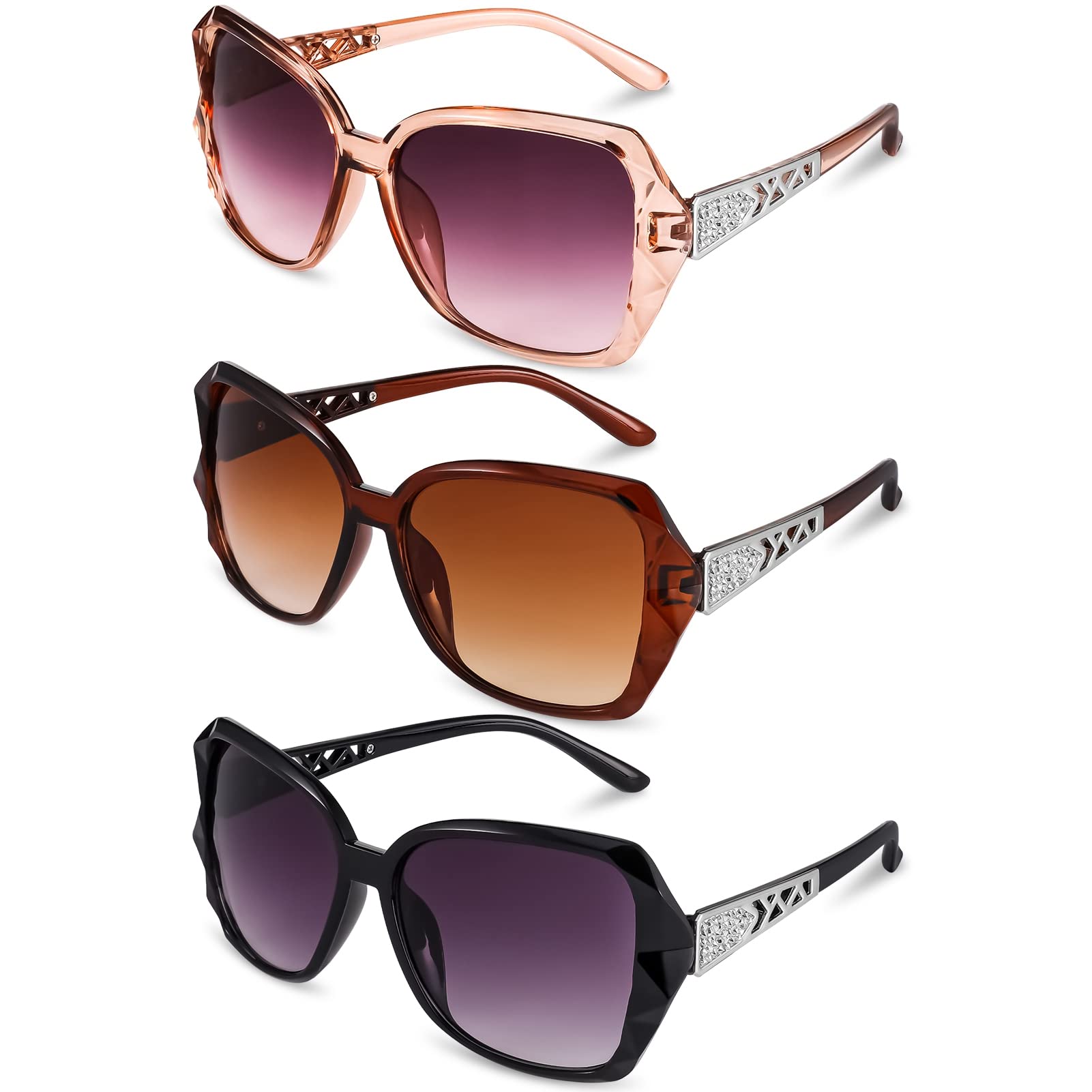 Can You Rely on Regular Sunglasses for Blue Light Defense?
Can You Rely on Regular Sunglasses for Blue Light Defense?
Regular sunglasses provide excellent defense against UV and glare. However, relying on them for blue light protection is risky. Most are not engineered for selective filtering. They reduce overall brightness. This includes some blue wavelengths. But the reduction is inconsistent.
For example, a dark gray lens might block 60% of blue light. A yellow-tinted one could block up to 90%. Without knowing the exact transmission rates, you can’t assume protection. Labels rarely specify blue light percentages. Terms like “anti-fatigue” or “visual comfort” are vague.
Moreover, lens darkness doesn’t guarantee blue light blocking. A very dark lens may still let through high-energy blue rays. In fact, overly dark lenses without proper filtering can worsen the problem. They cause pupils to dilate. This allows more unfiltered light into the eye.
If your goal is to reduce digital eye strain, regular sunglasses won’t help indoors. They’re too dark for indoor lighting. Instead, use clear or lightly tinted blue light glasses. These are made for screen use.
Outdoors, choose sunglasses with known blue light filtering properties. Look for brands that publish spectral data. Or pair your UV protection with lifestyle habits. Limit screen time in bright environments. Wear hats for added shade. Awareness complements equipment.
So, do sunglasses block blue light reliably? Only if specifically designed to do so.
Choosing the Right Eyewear for Indoor and Outdoor Blue Light Exposure
Managing blue light requires different strategies for indoor and outdoor settings. Indoors, where screens dominate, use dedicated blue light glasses. These have clear or amber lenses. They filter 20–40% of blue light. Some block up to 90%. Choose based on your screen usage.
For office workers, light tints preserve color accuracy. Gamers or night users may prefer stronger filters. Apply the 20-20-20 rule: every 20 minutes, look 20 feet away for 20 seconds. This reduces strain further.
Outdoors, prioritize UV and glare protection. Choose sunglasses with polarized lenses. Opt for amber, copper, or brown tints. These naturally reduce more blue light. Wrap-around styles prevent peripheral exposure.
Some brands now offer hybrid solutions. Photochromic lenses transition from clear to dark. Advanced versions include blue light filtering in both states. These are useful for people who move between environments frequently.
Children need special consideration. Their lenses transmit more blue light. Limit device time. Encourage breaks. Provide UV-protective sunglasses for outdoor play.
Always buy from reputable sources. Avoid counterfeit sunglasses. Poor optics distort vision. Misleading labels create false security. Read customer feedback. Look for third-party testing data.
Ultimately, no single pair does everything. Combine tools and habits. This gives the best defense.
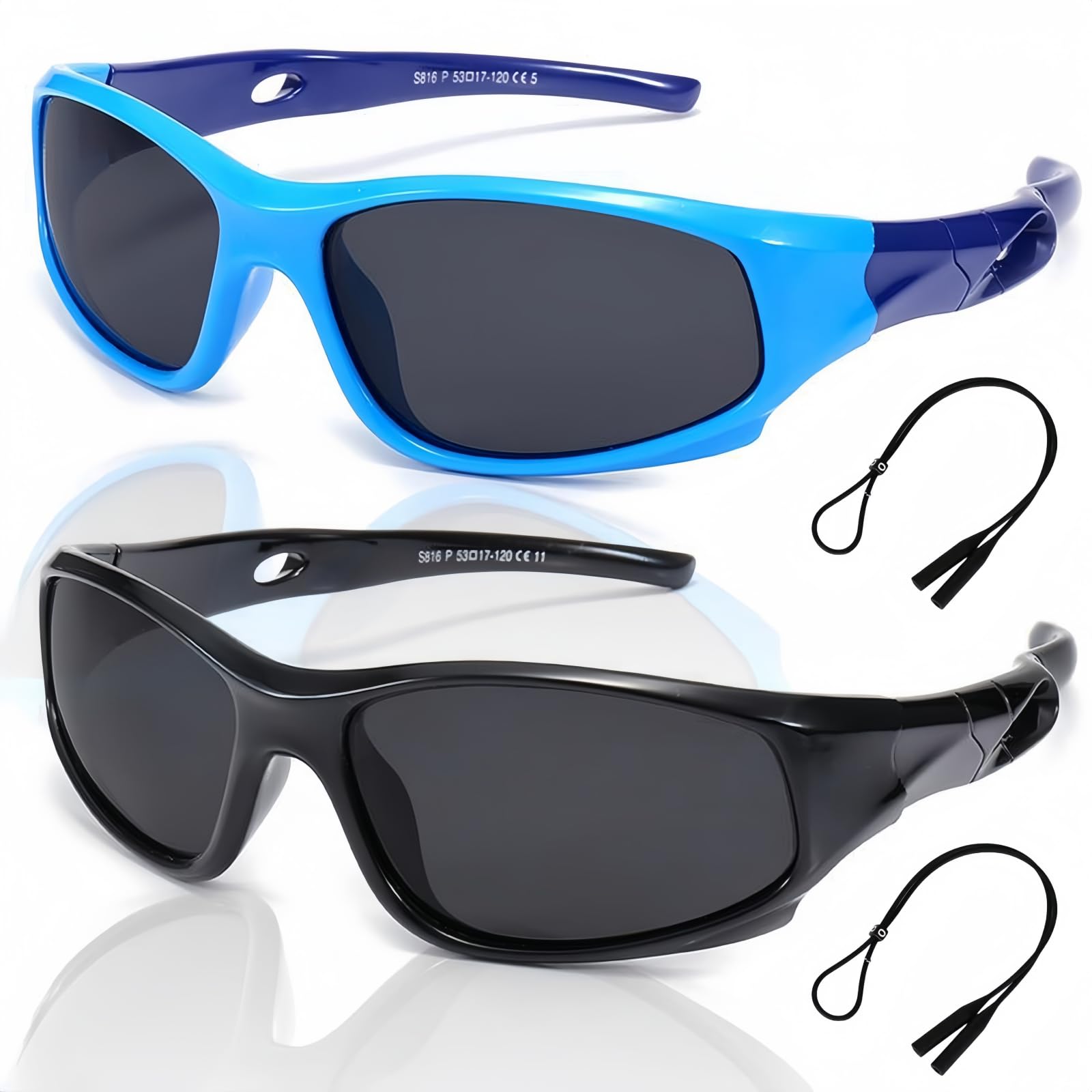 Frequently Asked Questions About Sunglasses and Blue Light
Frequently Asked Questions About Sunglasses and Blue Light
Do all sunglasses block blue light?
No. Most reduce it partially. Only specific tints or coatings target blue light effectively.
Can I wear blue light glasses outside?
Only if they also block UV. Clear blue light glasses lack sun protection.
Are polarized sunglasses better for blue light?
Not necessarily. Polarization reduces glare. Add an amber tint for better blue light filtering.
What color lens blocks the most blue light?
Yellow and orange lenses block the highest amount. They are best for low-light or digital use.
Should kids wear blue light blocking sunglasses?
Yes, especially if they use devices or spend time outdoors. Ensure proper UV protection.
Does blue light cause permanent eye damage?
Research is ongoing. Long-term exposure may contribute to retinal stress and sleep issues.
Can I get prescription sunglasses with blue light filtering?
Yes. Many opticians offer custom lenses with combined UV and blue light protection.
How do I know if my sunglasses filter blue light?
Check manufacturer specs. Look for terms like “blue light reduced” or spectral transmission charts.
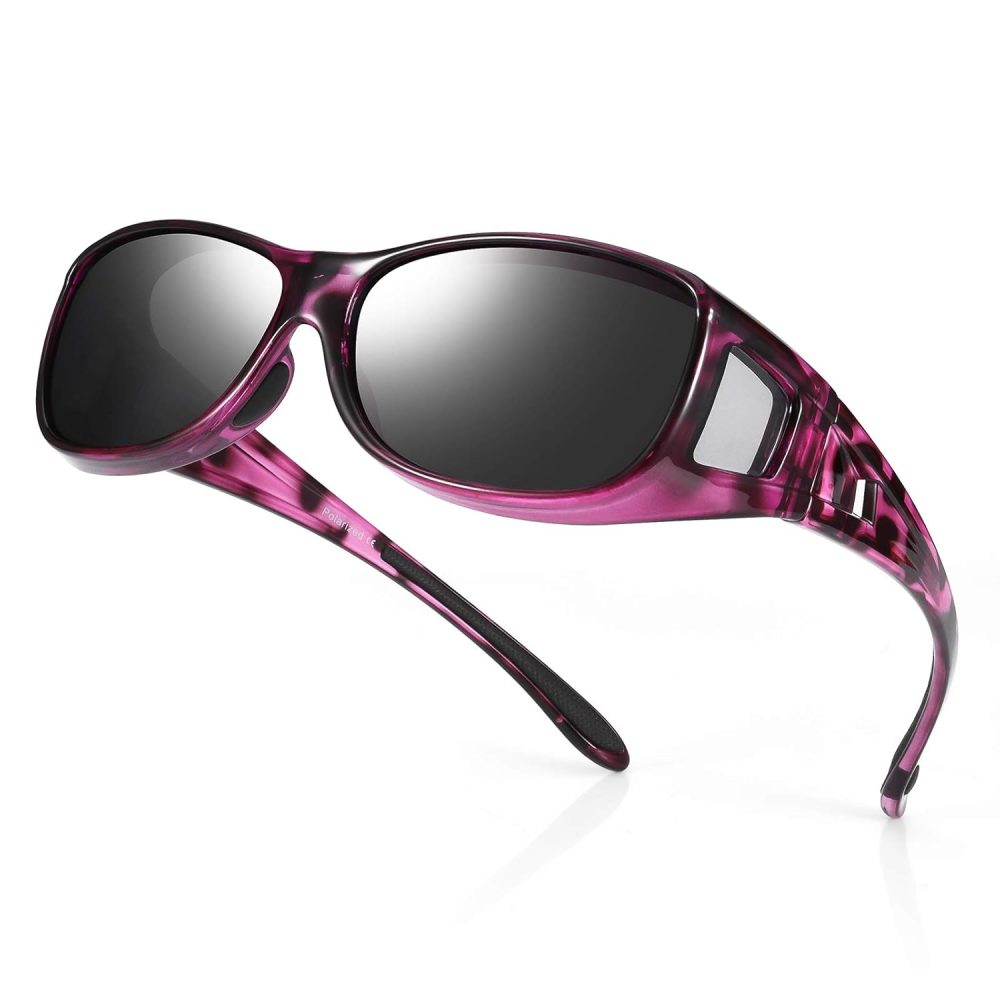 Final Thoughts on Whether Do Sunglasses Block Blue Light
Final Thoughts on Whether Do Sunglasses Block Blue Light
The question, do sunglasses block blue light, has a nuanced answer. Most standard models reduce some blue light due to tint and density. However, they are not designed to filter it selectively. Their main job is UV protection and glare reduction. For serious blue light defense, specialized lenses are needed.
Amber, copper, or yellow-tinted sunglasses perform better. They filter more high-energy wavelengths. Polarized versions with these tints offer enhanced visual comfort. Still, they are not a substitute for indoor blue light glasses.
A complete eye care strategy includes both types of eyewear. Use blue light glasses during screen time. Wear UV-protective sunglasses outdoors. Combine them with healthy habits. Take breaks. Manage screen brightness. Prioritize sleep hygiene.
Technology continues to evolve. Lens manufacturers are developing smarter coatings. Future sunglasses may offer dynamic filtering. Until then, informed choices matter most. By understanding the limits of current designs, you can protect your eyes effectively. And yes—when properly selected, certain sunglasses can block blue light. But only if you choose them with intention.